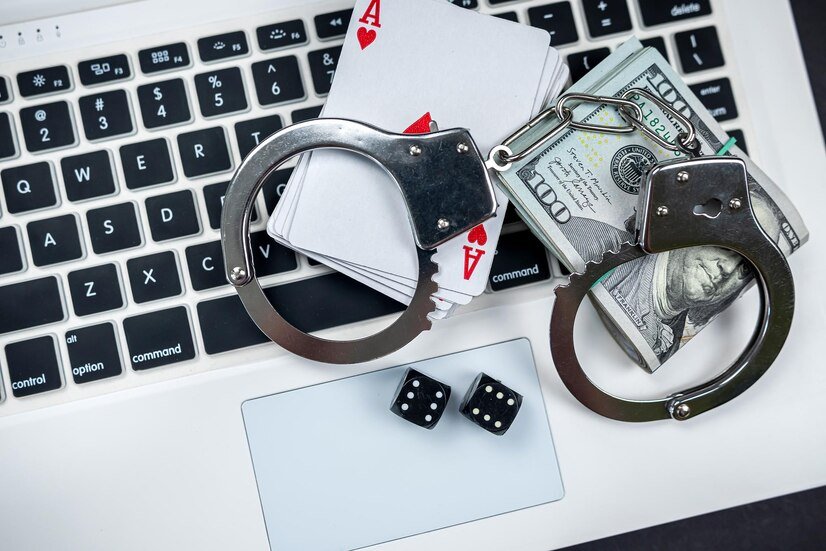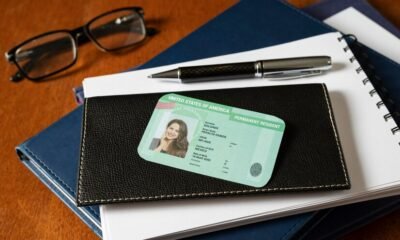Tech
The Psychology of Fake IDs: Motivations and Behaviors
Fake IDs

The allure of a fake identification document is more than just a means to gain access to age-restricted venues; it delves into the intricate realms of human psychology, motivations, and behaviors. From the desire for social acceptance to the pursuit of autonomy and independence, the decision to obtain a counterfeit ID is shaped by a complex interplay of factors. In this article, we’ll explore the psychology behind fake IDs, examining the motivations that drive individuals to acquire them and the behaviors associated with their use.
Desire for Social Acceptance and Peer Approval
One of the primary motivations behind obtaining a fake ID is the desire for social acceptance and peer approval. Adolescence and young adulthood are characterized by a strong need for belonging and validation from peers. For many young individuals, gaining entry into age-restricted venues such as bars, clubs, and parties is seen as a rite of passage—a way to assert their place within their social circle and gain acceptance among their peers.
The allure of being able to participate in activities that are typically reserved for older individuals can be powerful, driving young people to seek out counterfeit identification documents as a means of fitting in and avoiding social exclusion. The fear of missing out (FOMO) on social opportunities and experiences can further reinforce the desire to obtain a fake ID, as individuals strive to keep up with their peers and avoid feeling left out.
Sense of Autonomy and Independence
Another key psychological factor that motivates individuals to obtain fake IDs is the desire for autonomy and independence. Adolescence is a time of transition and self-discovery, marked by a growing desire to assert one’s independence and make decisions autonomously. For many young people, the ability to access age-restricted venues and activities represents a tangible manifestation of their newfound freedom and autonomy.
Obtaining a fake ID allows individuals to exert control over their own lives and make choices that align with their desires and preferences, independent of external restrictions or regulations. The sense of empowerment that comes from being able to bypass age restrictions and participate in adult activities can be exhilarating, reinforcing the decision to acquire a counterfeit identification document.
Thrill-Seeking and Risk-Taking Behaviors
The pursuit of excitement and novelty is another psychological factor that drives individuals to obtain fake IDs. Adolescence and young adulthood are characterized by a propensity for thrill-seeking and risk-taking behaviors, as individuals seek out new experiences and sensations to satisfy their curiosity and adventurous spirit. The allure of gaining entry into age-restricted venues and engaging in activities that are perceived as forbidden or taboo can be irresistible for some young people.
Obtaining a fake ID represents a thrill-seeking adventure—a way to defy rules and authority, and experience the exhilaration of breaking societal norms. The adrenaline rush that comes from successfully using a counterfeit identification document to gain entry into a bar or club can be addictive, leading individuals to engage in risky behaviors and push the boundaries of what is deemed socially acceptable.
Coping Mechanism and Identity Exploration
For some individuals, obtaining a fake ID serves as a coping mechanism for dealing with feelings of inadequacy, insecurity, or social isolation. Adolescence is a time of identity exploration and self-discovery, marked by intense emotions and internal struggles. The desire to fit in and be accepted by peers can lead individuals to seek out counterfeit identification documents as a way to escape from feelings of loneliness or alienation.
Using a fake ID allows individuals to adopt a new identity and explore different facets of their personality in a safe and controlled environment. It provides an opportunity to reinvent oneself and break free from the constraints of societal expectations and norms. However, relying on a counterfeit identification document as a coping mechanism can have negative consequences, reinforcing maladaptive behaviors and preventing individuals from addressing underlying issues in a healthy and constructive manner.
Conclusion
The psychology of fake IDs is a complex and multifaceted phenomenon, influenced by a myriad of factors including the desire for social acceptance, autonomy, thrill-seeking behavior, and coping mechanisms. Understanding the motivations and behaviors associated with obtaining and using counterfeit identification documents can provide valuable insights into the psychological needs and challenges faced by adolescents and young adults.
By addressing the underlying psychological factors that drive individuals to seek out fake IDs, we can develop more effective strategies for promoting responsible decision-making and fostering healthy behaviors among young people. This requires a holistic approach that takes into account the social, cultural, and psychological factors that influence attitudes towards counterfeit identification documents, and empowers individuals to make informed choices that align with their values and aspirations.
Table of Contents
-

 Tech1 year ago
Tech1 year agoHow to Use a Temporary Number for WhatsApp
-

 Business2 years ago
Business2 years agoSepatuindonesia.com | Best Online Store in Indonesia
-

 Social Media2 years ago
Social Media2 years agoThe Best Methods to Download TikTok Videos Using SnapTik
-

 Technology2 years ago
Technology2 years agoTop High Paying Affiliate Programs
-

 Tech1 year ago
Tech1 year agoUnderstanding thejavasea.me Leaks Aio-TLP: A Comprehensive Guide
-

 FOOD1 year ago
FOOD1 year agoHow to Identify Pure Desi Ghee? Ultimate Guidelines for Purchasing Authentic Ghee Online
-

 Instagram3 years ago
Instagram3 years agoFree Instagram Auto Follower Without Login
-

 Instagram3 years ago
Instagram3 years agoFree Instagram Follower Without Login























